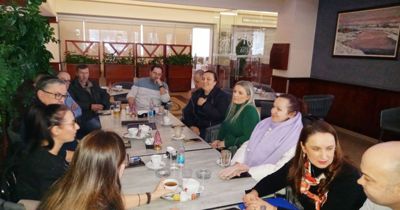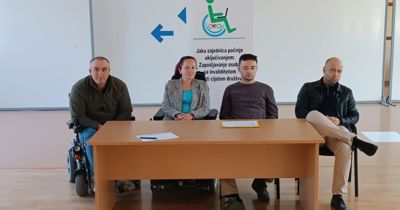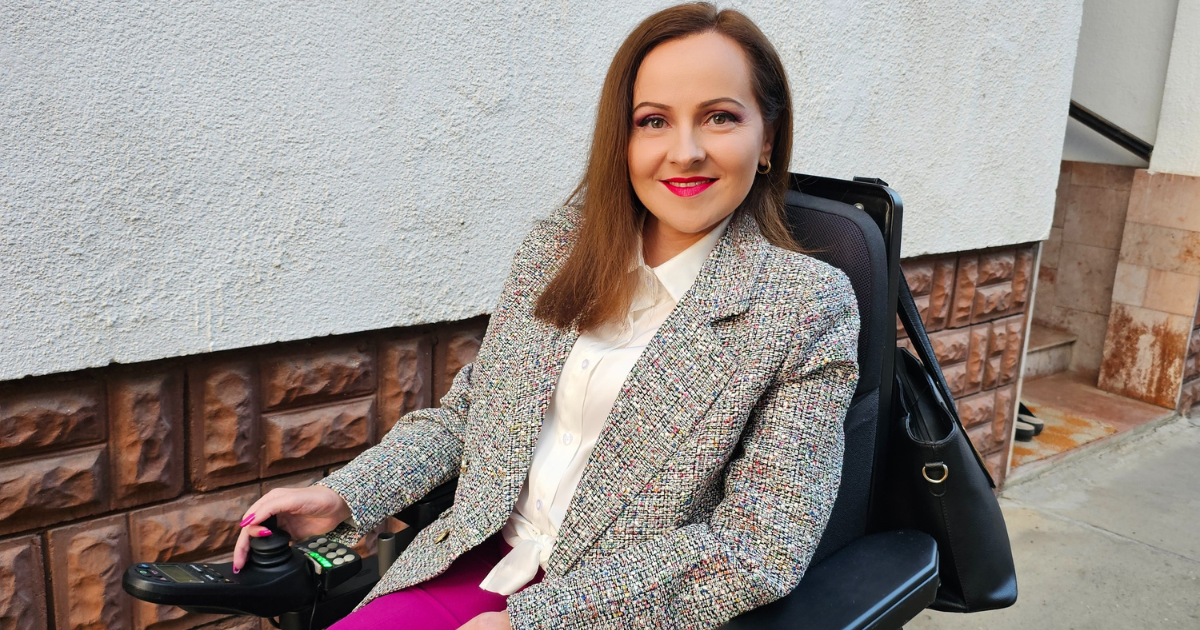
The Brčko District is the only part of Bosnia and Herzegovina that still does not have a law that would regulate the rights of people with disabilities to employment and professional rehabilitation. The absence of this law further complicates access to the labor market and contributes to discrimination against this vulnerable category.
The Association "Vjera&nada", together with partner organizations UG Demos, the Laila Foundation and the Association of Multiple Sclerosis Patients, advocates for increasing the number of employed people with disabilities in the Brčko District and quota employment of people with disabilities in the Brčko District, raising public awareness about the problems of employment of people with disabilities in the public sector of the Brčko District, but also advocating for quota employment of people with disabilities in the public sector of the Brčko District.
Nataša Damjanović, president of the Association "Vjera&nada", shared her view of the problem, potential solutions, as well as a review of her personal experience and everyday needs.
How did your fight to introduce quota employment of people with disabilities in the Brčko District begin? What motivated you to launch this initiative?
My fight for the implementation of quota employment for people with disabilities in the Brčko District began out of the need to improve the position of people with disabilities in the labor market. In my association, Vjera&nada, I am in daily contact with people who, despite their knowledge and abilities, often encounter obstacles in employment. Their stories, the fight for a dignified life, and the desire to be active members of society were my greatest motivation to launch this initiative.
We have seen how similar laws in other areas, such as the Federation of Bosnia and Herzegovina and the Republika Srpska, as well as neighboring countries, have a positive effect on increasing the employment of people with disabilities. I believe that the quota system can bring changes here as well because it encourages employers to see the potential of people with disabilities and provide them with opportunities for work and independence. Our goal is to create a more inclusive society in which everyone has equal opportunities, and the adoption of this law would be a significant step towards that.
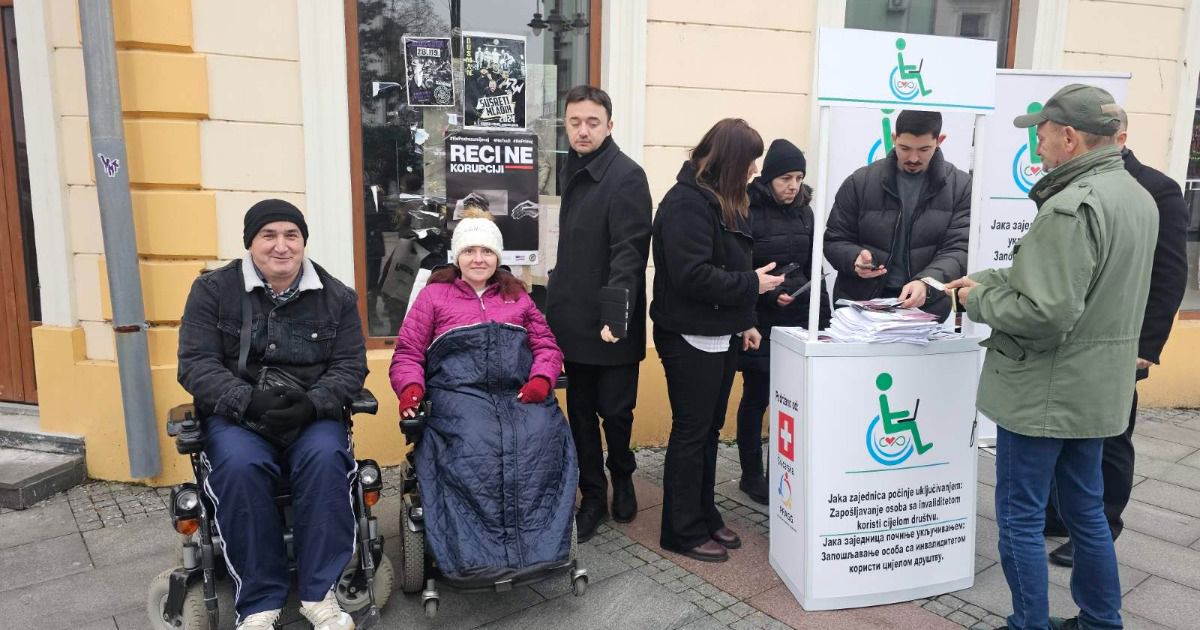
What were the biggest challenges you faced at the beginning?
From the very beginning, we faced many challenges. The biggest and initial challenge was the unavoidable lack of awareness of the importance of employing people with disabilities, both among decision-makers and employers. It took a lot of effort and work to explain why the quota system is necessary and how it can contribute to society and the economy.
Another challenge was the legal and administrative complexity. The Brčko District does not have a law that systematically regulates the employment of people with disabilities in the way that it is regulated in other parts of BiH. This meant that we had to work on a draft proposal that had already been created but had been in a drawer for a long time and seek support from relevant institutions, which is a process that requires time and perseverance.
What exactly does a quota employment system entail, and how could it change the situation for people with disabilities in Brcko?
Quota employment entails a legal obligation for employers to employ a certain percentage (number) of people with disabilities, depending on the size of the company or institution. Suppose an employer is unable or unwilling to meet this obligation. In that case, they can alternatively pay special contributions to a fund for supporting the employment of people with disabilities, which will be located at the Employment Service. Such a fund would be used to finance various measures such as wage subsidies, job adaptations, or vocational training for people with disabilities.
Adopting a quota employment system in the Brčko District could significantly change many things. Employing people with disabilities would be prioritized, enabling them to achieve economic independence and greater social inclusion. Employers would also be encouraged and supported to adapt jobs and recognize the potential of these workers. In the long run, this system would change prejudices, and it would also prove that people with disabilities can be productive and successful at work just like other workers.
Are there any positive examples from other cities or countries that have inspired you?
Yes, there are many positive examples in other cities and countries that have inspired us. In Bosnia and Herzegovina, the Federation of BiH and the Republika Srpska already have laws regulating quota employment of people with disabilities. In the Federation of BiH, there is a Fund for Professional Rehabilitation and Employment, which provides subsidies to employers, while in the Republika Srpska, there is a Fund for Professional Rehabilitation and Employment of People with Disabilities, which provides financial support and incentives for the employment of people with disabilities. All of these models have shown that with the right support, employers can see and recognize the value of inclusive employment. At the international level, an excellent example is Germany, which has been successfully implementing quota employment for many years. In Germany, not only does it prescribe a minimum number of employees of people with disabilities in companies, but it also provides great support – from financial incentives to adapted working conditions. Also, Croatia, through a similar system, has managed to increase the number of employed people with disabilities and develop a system of support for employers, including advisory services and adapted training. These examples show us that quota employment is effective when it is well designed and includes support mechanisms, not just an obligation. Based on these experiences, we believe that the introduction of quota employment in the Brčko District would bring positive changes and enable persons with disabilities to participate equally in the labor market.
How would you describe the current situation when it comes to employing persons with disabilities in Brčko? What are the biggest obstacles?
The current situation when it comes to employing persons with disabilities in the Brčko District is not at satisfactory level. Unfortunately, there is no legal obligation or systemic support that would encourage employers in BiH to hire them, which results in a low number of employed persons with disabilities. A great many persons are forced to rely on social assistance instead of having the opportunity for dignified work and economic empowerment.
The biggest obstacle is primarily the lack of appropriate support. Given that there is no law regulating this area, employers are not obliged, nor are they sufficiently motivated, to decide to employ persons with disabilities.
Another major problem is prejudice and lack of awareness. Many employers still have wrong perceptions about the work abilities of people with disabilities and are afraid of the additional costs of adapting the workplace. In addition, people with disabilities usually do not have access to experiential training and vocational rehabilitation programs, which makes them even more competitive in the labor market.
Partly because of all of the above, I am of the opinion that it is necessary to establish as soon as possible legal and institutional acts that would enable equal employment of persons with disabilities. Through quota employment, subsidies, and support programs, we can make a significant step towards a more inclusive labor market in Brčko.
Can you share a specific example of a person who has encountered difficulties in employment due to disability? Or if you have any personal experience, please share it with us?
Unfortunately, we encounter numerous examples of people with disabilities who face difficulties in employment. I will give my own example.
After completing secondary education, due to the inaccessibility of faculties and the lack of the possibility of distance learning or electronic education, I remained in secondary education. I decided to apply for the vacancy announced at the time by the Government of the Brčko District. Before receiving the documents themselves, we were told by the employee that the documents could not be received because another person had brought them. That other person was my mother, because at that moment it was raining heavily and I could not get out of the car. When the employee heard that it was a person with a disability, she said that there was no Law on the Employment of Such Persons and that they could not consider the documents.
This is just one example of how much it would mean for a person with a disability to be an equal citizen like everyone else and to have equal legal rights. There are many more, perhaps even more difficult, cases that have not been able to demonstrate their knowledge, success, and capabilities due to the still unadopted Law.
What significance would a quota system have for young people with disabilities who are just finishing their education and entering the labor market?
Incentives for the employment of people with disabilities, i.e. quota employment, would be of great importance, especially for young people who are just finishing their education and entering the labor market. Many young people with disabilities face a double challenge - on the one hand, a lack of work experience makes it difficult for them to find a job, and on the other hand, employers are often prejudiced and are not ready to give them the opportunity to demonstrate their working ability.
By introducing quota employment, employers would have an obligation and incentive to employ young people with disabilities, thus enabling them to gain their first work experience and build a career. Also, through a system of subsidies and professional rehabilitation, young people would receive support in the form of additional training, adapted jobs and mentoring, which would increase their competitiveness.
Most importantly, this system would give young people a sense of security and faith that their efforts and education will pay off, instead of facing discrimination and unemployment after completing their education. In the long run, the quota system would contribute to their economic independence and greater social inclusion.
What was the government's reaction to your initiative?
The government recognized the importance of the topic and showed a certain level of understanding for the problem of employment of persons with disabilities. However, a quick reaction is still lacking to establish a legal framework that would regulate quota employment in the Brčko District.
Although we have had certain meetings with government representatives, we are facing slow decision-making processes. We often encounter justifications that additional research is needed, harmonization with other laws.
However, we are not giving up and continue to exert pressure, both through public campaigns and direct dialogue with institutions. We believe that the government must understand that this system is not only a matter of social policy but also an economic opportunity for development and inclusion in Brčko.
How would you assess the cooperation with institutions and employers so far? Are there any companies that are ready to take responsibility and support the employment of people with disabilities?
The institutions have shown their willingness and readiness to talk, but we are still waiting for concrete actions and legal changes that will contribute to the employment of people with disabilities. Administrative barriers and a lengthy decision-making process continue to slow down progress, but we continue to exert pressure and advocate for systemic changes. When it comes to employers, we plan to hold a meeting with representatives of the business sector to present the initiative to them and discuss the possibilities of employing people with disabilities. We believe that it is necessary and necessary to open a conversation and clarify all the ambiguities and prejudices that exist regarding this topic. We believe that many employers, with adequate information and support, will recognize the advantages of inclusive employment and be ready to provide a chance to people with disabilities. We plan to create a better framework for employment through this meeting and continued cooperation and to prove that people with disabilities are equal and valuable members of the work collective.
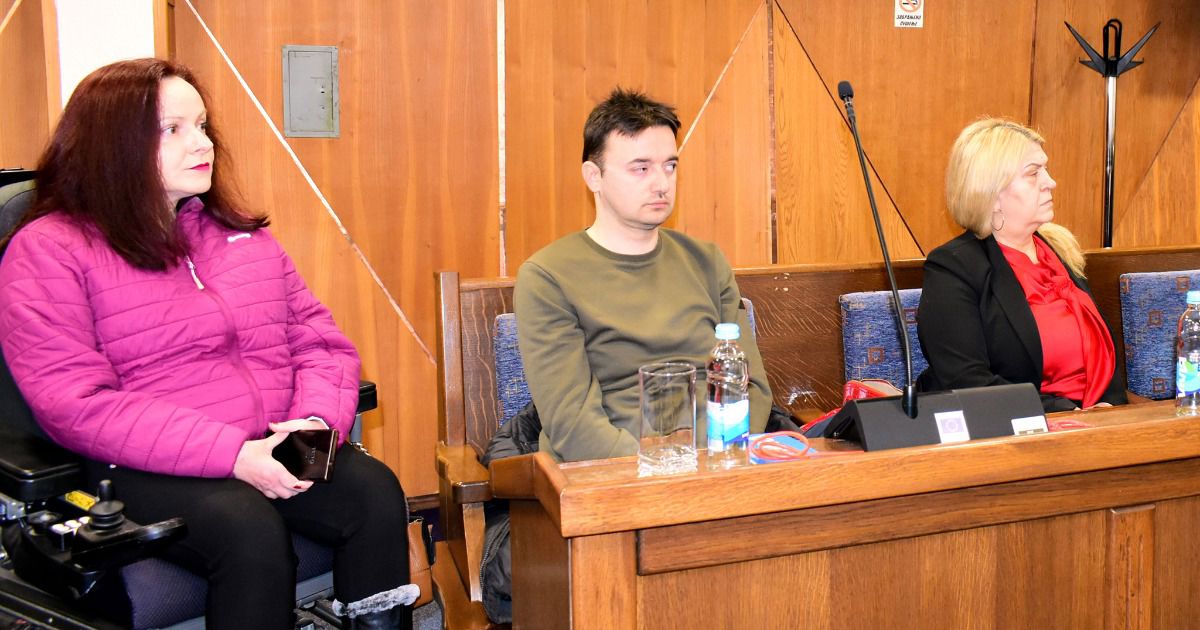
What are the next steps in your struggle and key goals in the coming period?
Our next steps are focused on specific actions that will contribute to the establishment of a quota system for the employment of persons with disabilities in the Brčko District. Key goals in the coming period include meetings with employers, raising public awareness, strengthening cooperation with institutions, and presenting positive examples. Our goal is to enable persons with disabilities to have equal access to the market to ensure economic independence. We believe that with the joint work of institutions, employers, and the non-governmental sector, we can achieve this vision.
Do you have a message for young persons with disabilities who are facing uncertainty regarding employment?
My message to young persons with disabilities who are facing employment uncertainty is: don’t give up! We are aware that the path to employment is full of obstacles, but that does not mean that you should give up or that you do not deserve the same opportunities as everyone else. Try, develop your abilities, get educated, and look for opportunities because your values are not less valuable because of your disability. Your contribution to society and the labor market is equally significant. We are fighting to create better conditions and provide systemic support so that employers recognize the potential of people with disabilities. It is important to be brave and persistent, not to be discouraged by the first job rejection. You are not alone in this fight – together we can change things and build a society in which every person will have the opportunity for a dignified and independent life.
Finally, how do you personally experience this fight? What gives you the strength to continue?
I experience this as a difficult and at the same time noble path towards a society of equal opportunities. I am aware of all the challenges and obstacles we face, but every step forward, the possibility for every person with disabilities to have a chance to work, gives me the strength to bring this story to an end.
I am, as I like to say, “one foot” in retirement because I am over forty years old, and this is not just a personal fight for me, but a fight for the younger generations to come. I want future generations to have it easier than it has been for us up to this point. We must not allow young people with disabilities to go through the same obstacles that we went through, to remain on the margins of society just because the system is not adapted to them.
I am encouraged by all those who understand how important this fight is, by young people who deserve a chance. I believe that together we can create a more inclusive and just society in which every person, regardless of their abilities, will have the opportunity to contribute to the community and live with dignity, and not on the margins of social security.
And that is why I will not stop until the Law on Employment of Persons with Disabilities is adopted!
UG Vjera&nada and its partners call on all citizens, institutions and decision-makers to join the efforts to adopt this key law in order to create a more inclusive society in the Brčko District of BiH.
Follow them on their FB PAGE.
